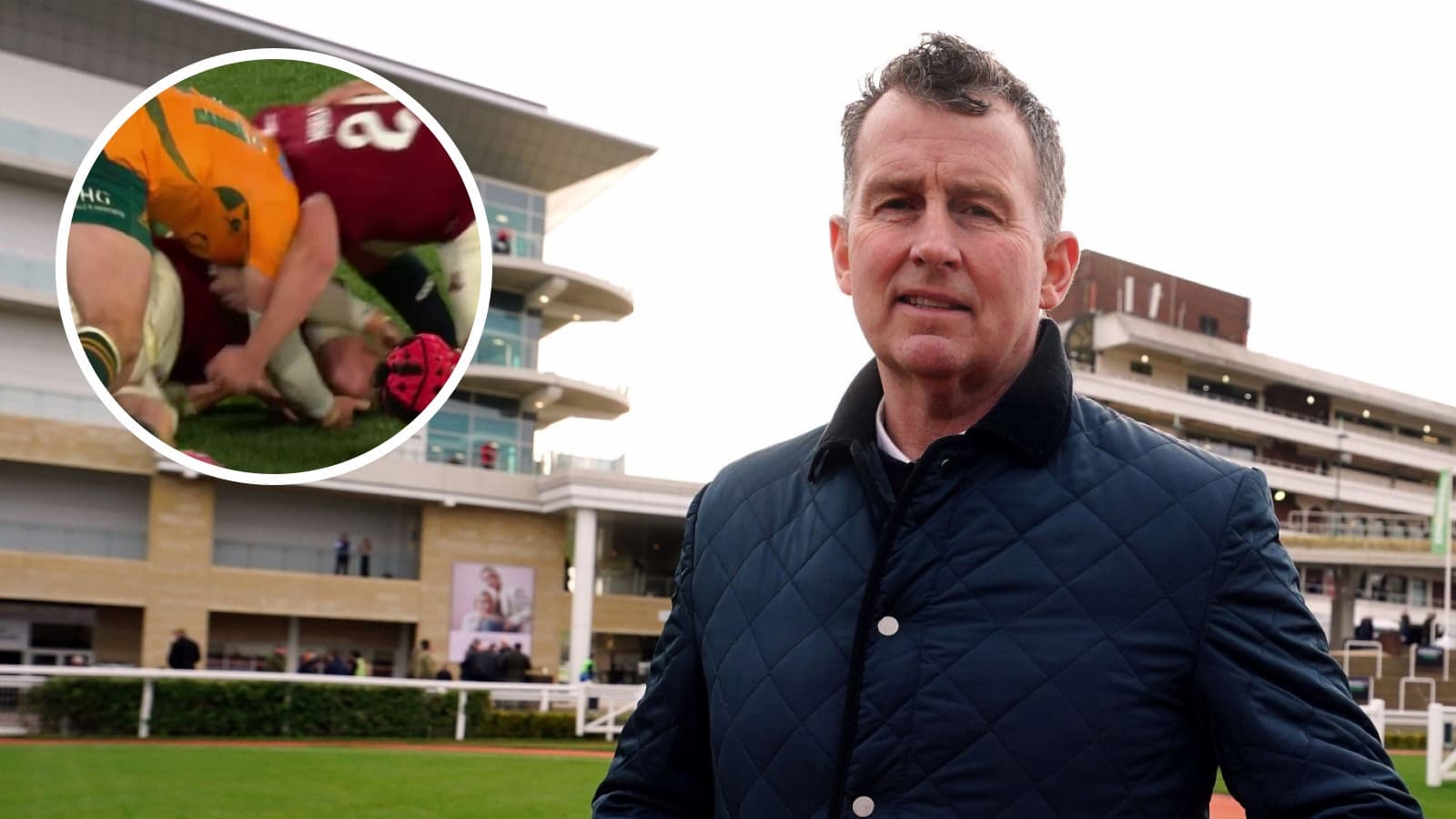Former elite referee Nigel Owens has provided a detailed explanation as to why he felt Andrea Piardi was correct not to penalise Jac Morgan last weekend.
The British and Irish Lions took an unassailable 2-0 lead in the three-Test series against the Wallabies, but the clash ended in controversy.
There were complaints from Australia that Morgan’s clearout in the build-up to Hugo Keenan’s match-winning try were illegal.
They felt the Lions flanker should have been penalised for connecting with the head of Carlo Tizzano, but Owens disagreed.
The 54-year-old went through the incident at length on World Rugby’s Whistle Watch and gave the reasons why Piardi came to the decision he did.
Why the try was correctly awarded
Owens started off by looking at the actions of the two players involved and explained that Morgan was legal.
“If you’re going to coach the law and the law says the players arriving at the breakdown must arrive upwards, so they can’t go off their feet,” he said.
“If you look at the Australian player (Tizzano), who is legal. You may debate whether his entry is legal or not, but his actions going for the ball are what we would see normally in a game.
“His head is pointing down, he’s supporting his bodyweight, but he’s down close to the ground.
“When you are going to clear that out, the key thing is here: you must clear him out with your arms wrapped, whether that’s underneath him or on top of him and drive him away from that situation.
“If you look how low he is, there is no way to compete with that unless you try and go lower and underneath him.
“The actions and the body positioning of the Australian player and the Lions player are very, very similar, although the Lions player is slightly lower because he’s got to try and get underneath him.
“His arms are out so he’s not entering with a shoulder tucked so his actions are legal for the clearout.”
Wayne Barnes wades into the heated debate over Jac Morgan’s Lions clear-out of Carlo Tizzano
Owens added: “The other key thing is the dynamics of it. Yes, the Australia player gets there a split second before the Lions player. If he was there a couple of seconds sooner and the Lions player is coming a couple of seconds late and has time to readjust and doesn’t then you would be having a conversation of that action being illegal.
“Everything at the moment is legal. There is nothing else Jac Morgan can do here, everything he’s doing is legal.”
Morgan going off his feet
Some have questioned whether Morgan went off his feet, which is another possible infringement, but Owens insisted that his fellow Welshman’s actions were acceptable.
“The fact he does go to ground after the attempted clearout is pretty much irrelevant because he doesn’t come in diving on the ground, he’s coming in low to try to move a player,” the ex-Test referee said.
“He then does go off his feet himself, but that is allowed. We see this type of action pretty much in every game in different areas of the field, but because it is match-winning, because it is close to the tryline, it gets scrutinised and becomes very technical.
“I understand why this splits the room but, for me, and I would say for pretty much nearly all referees I’ve spoken to – everyone actually – it’s quite simple.
“It’s a really tricky one but I felt the match officials got this right.”
Former England player Ugo Monye was presenting the show and he felt there was contact with Tizzano’s neck, thus meeting the threshold of foul play, but Owens explained why Piardi did not penalise Morgan for that offence.
“Is it really clear and obvious contact direct on the head or neck? Maybe there is, maybe there isn’t, but the key thing to remember here is not every contact around the head or neck area is foul play. Sometimes there is a genuine rugby collision,” he said.
“Because it’s so dynamic, he’s there that split second afterwards, you’ve got no time now to change or readjust anything, and his actions are always legal. Even though there may be head contact or neck contact, it is not foul play, and if there’s no foul play, then it’s play on.”
READ MORE: Ex-ref boss’ ‘you can’t have it both ways’ argument after British and Irish Lions controversy

